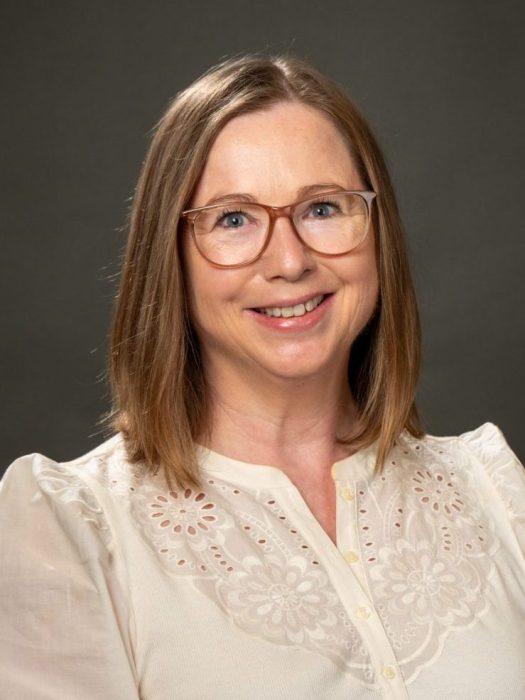This article is from the fall 2024 issue of DISCOVERY, the Thompson Center’s research newsletter.
Kerri Nowell, Ph.D., joined the Thompson Center health psychology team as a postdoctoral fellow in 2016. Dr. Nowell stayed on as a faculty member after the completion of her training and became the Director of Health Professions at the Thompson Center in May. She is an Associate Clinical Professor in the Department of Health Psychology in the University of Missouri College of Health Sciences. Dr. Nowell is the principal investigator on the EarliTec and SPARK studies at the Thompson Center.
Tell us about your educational background.
I earned my bachelors in psychology and pre-med with a minor in biology from the University of Texas at Arlington. Then, I completed my masters degree in school psychology at Sam Houston State University in Huntsville, TX. I got my Ph.D. in school psychology from the University of Houston.
How did you first get involved with autism research?
I worked for seven years as a school psychologist before taking a position at Baylor College of Medicine’s Texas Children’s Hospital in the Department of Genetics. While at Texas Children’s, I became a site supervisor for the Simons Simplex Collection (SSC), a national autism genetics study which had another site at the Thompson Center. Though I loved my work with youth identified with neurodevelopmental disorders in school, it was the SSC that solidified my specific interest in autism.
What are your research interests?
I’m a clinician researcher. My clinical work drives my research, and my research informs my clinical practice. Most of my research questions come from the work I do with families. I want to find ways to improve diagnostic processes in a way that best supports families, gives us the best data possible, reduces wait times, and removes barriers to healthcare access. Over time, I’ve become increasingly interested in strengths-based research questions and looking beyond the current medical model of autism.
What is the long-term goal of your research?
The medical model is important for making an autism diagnosis, because that’s how people get services and it helps people understand why they are the way they are. However, I think being able to incorporate strengths into clinical practice will ultimately lead to better outcomes for people with autism.
What is your favorite thing about working in this field?
The patients and families! The kids I get to work with are hilarious and so unique. It’s easy to say that everyone is unique, but getting to experience it every day is a privilege.


